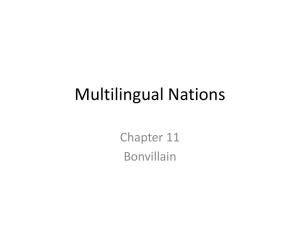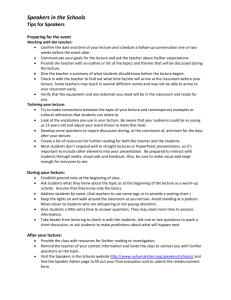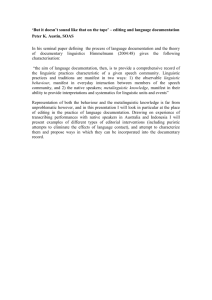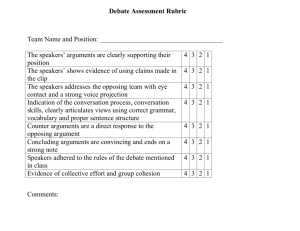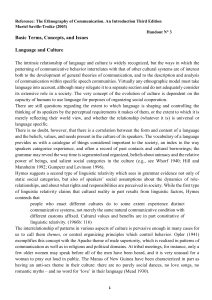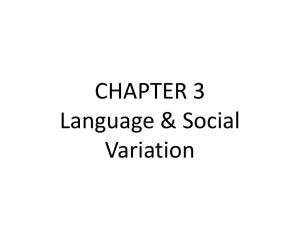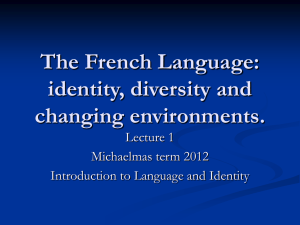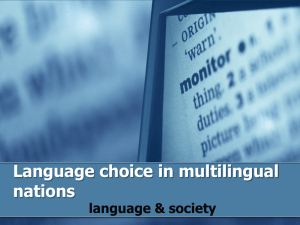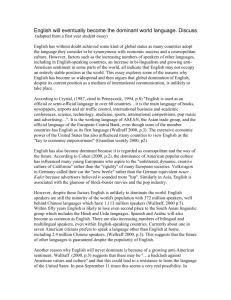Reading Passage - UdeSantiagoVirtual
advertisement
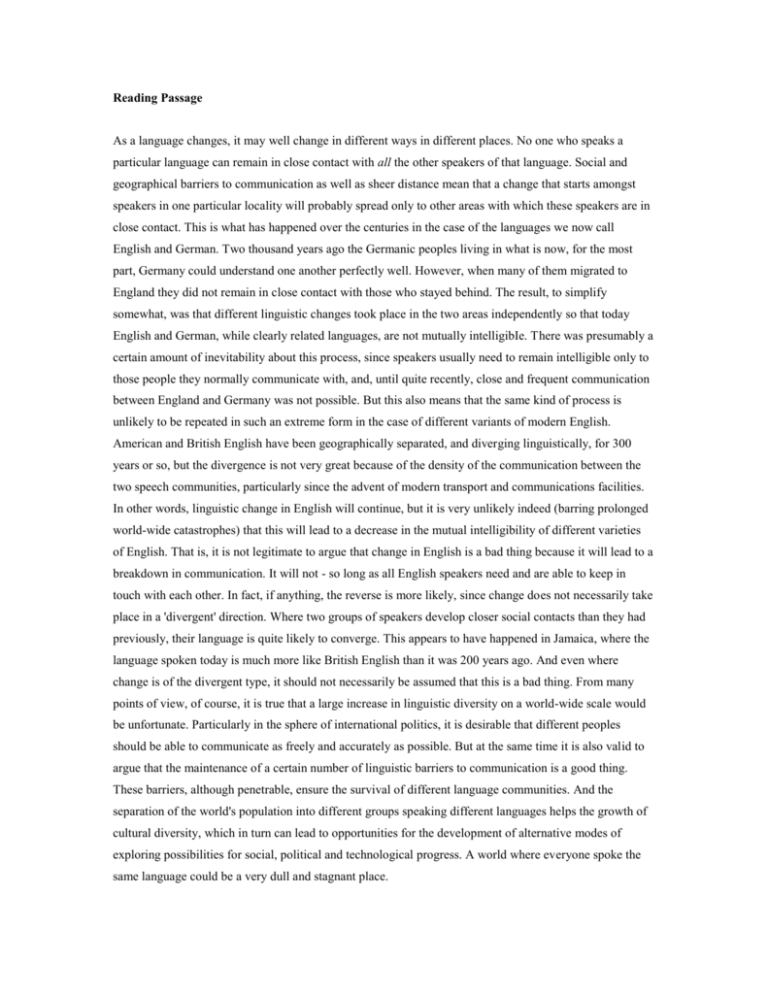
Reading Passage As a language changes, it may well change in different ways in different places. No one who speaks a particular language can remain in close contact with all the other speakers of that language. Social and geographical barriers to communication as well as sheer distance mean that a change that starts amongst speakers in one particular locality will probably spread only to other areas with which these speakers are in close contact. This is what has happened over the centuries in the case of the languages we now call English and German. Two thousand years ago the Germanic peoples living in what is now, for the most part, Germany could understand one another perfectly well. However, when many of them migrated to England they did not remain in close contact with those who stayed behind. The result, to simplify somewhat, was that different linguistic changes took place in the two areas independently so that today English and German, while clearly related languages, are not mutually intelligibIe. There was presumably a certain amount of inevitability about this process, since speakers usually need to remain intelligible only to those people they normally communicate with, and, until quite recently, close and frequent communication between England and Germany was not possible. But this also means that the same kind of process is unlikely to be repeated in such an extreme form in the case of different variants of modern English. American and British English have been geographically separated, and diverging linguistically, for 300 years or so, but the divergence is not very great because of the density of the communication between the two speech communities, particularly since the advent of modern transport and communications facilities. In other words, linguistic change in English will continue, but it is very unlikely indeed (barring prolonged world-wide catastrophes) that this will lead to a decrease in the mutual intelligibility of different varieties of English. That is, it is not legitimate to argue that change in English is a bad thing because it will lead to a breakdown in communication. It will not - so long as all English speakers need and are able to keep in touch with each other. In fact, if anything, the reverse is more likely, since change does not necessarily take place in a 'divergent' direction. Where two groups of speakers develop closer social contacts than they had previously, their language is quite likely to converge. This appears to have happened in Jamaica, where the language spoken today is much more like British English than it was 200 years ago. And even where change is of the divergent type, it should not necessarily be assumed that this is a bad thing. From many points of view, of course, it is true that a large increase in linguistic diversity on a world-wide scale would be unfortunate. Particularly in the sphere of international politics, it is desirable that different peoples should be able to communicate as freely and accurately as possible. But at the same time it is also valid to argue that the maintenance of a certain number of linguistic barriers to communication is a good thing. These barriers, although penetrable, ensure the survival of different language communities. And the separation of the world's population into different groups speaking different languages helps the growth of cultural diversity, which in turn can lead to opportunities for the development of alternative modes of exploring possibilities for social, political and technological progress. A world where everyone spoke the same language could be a very dull and stagnant place.
